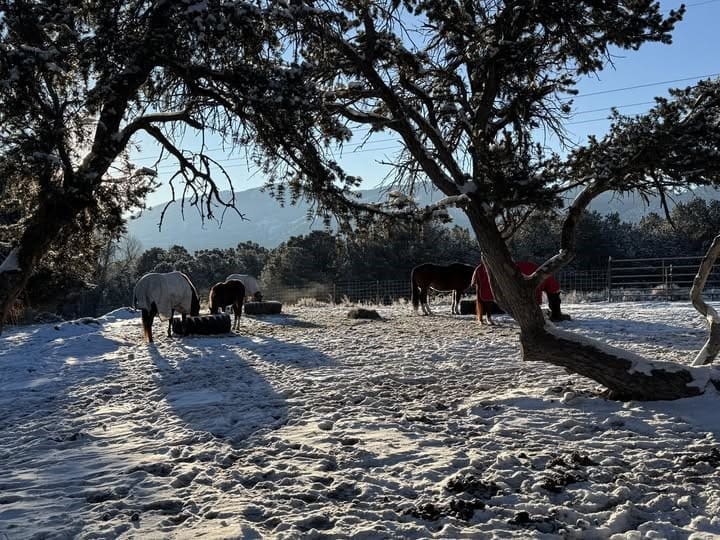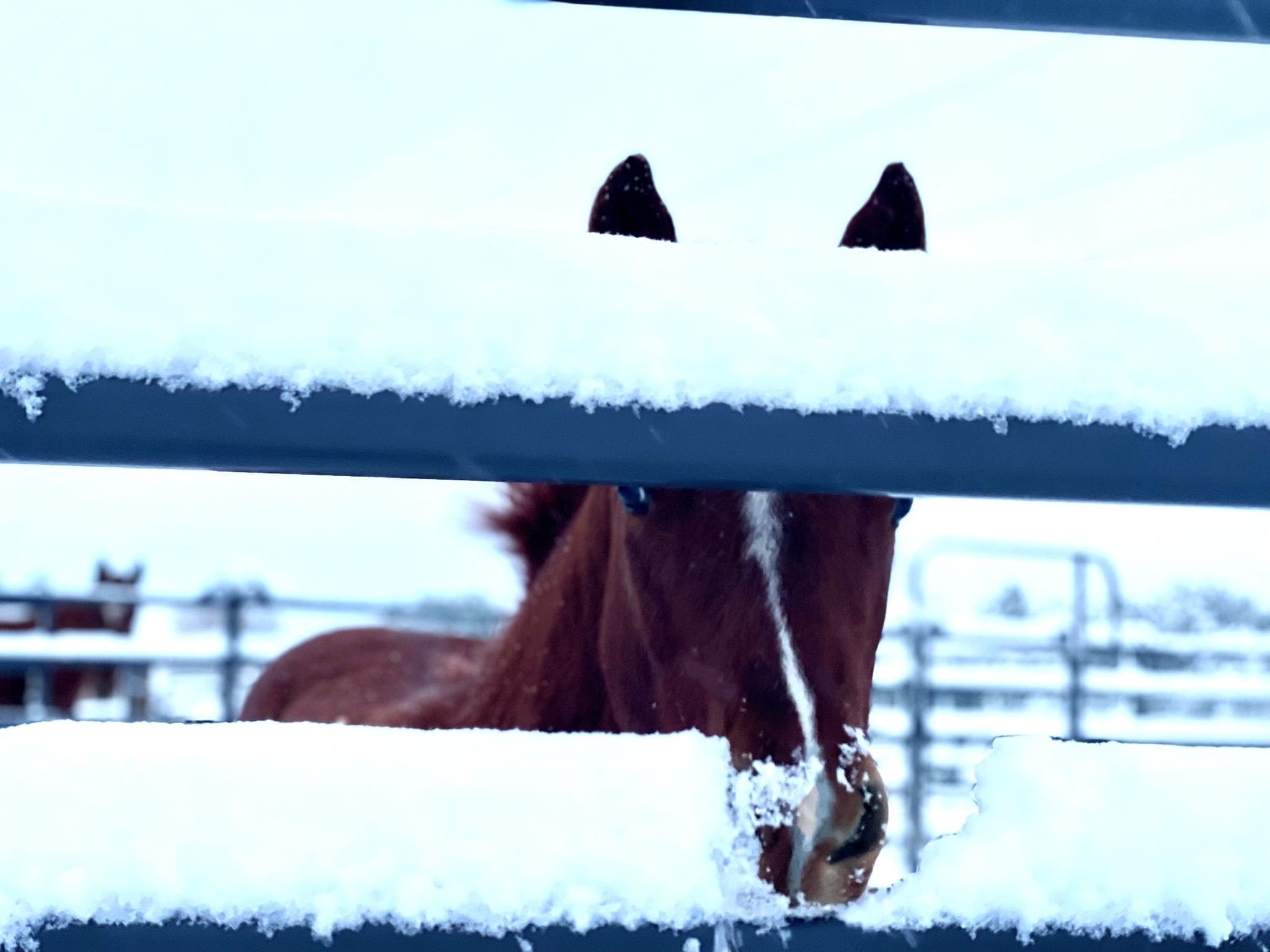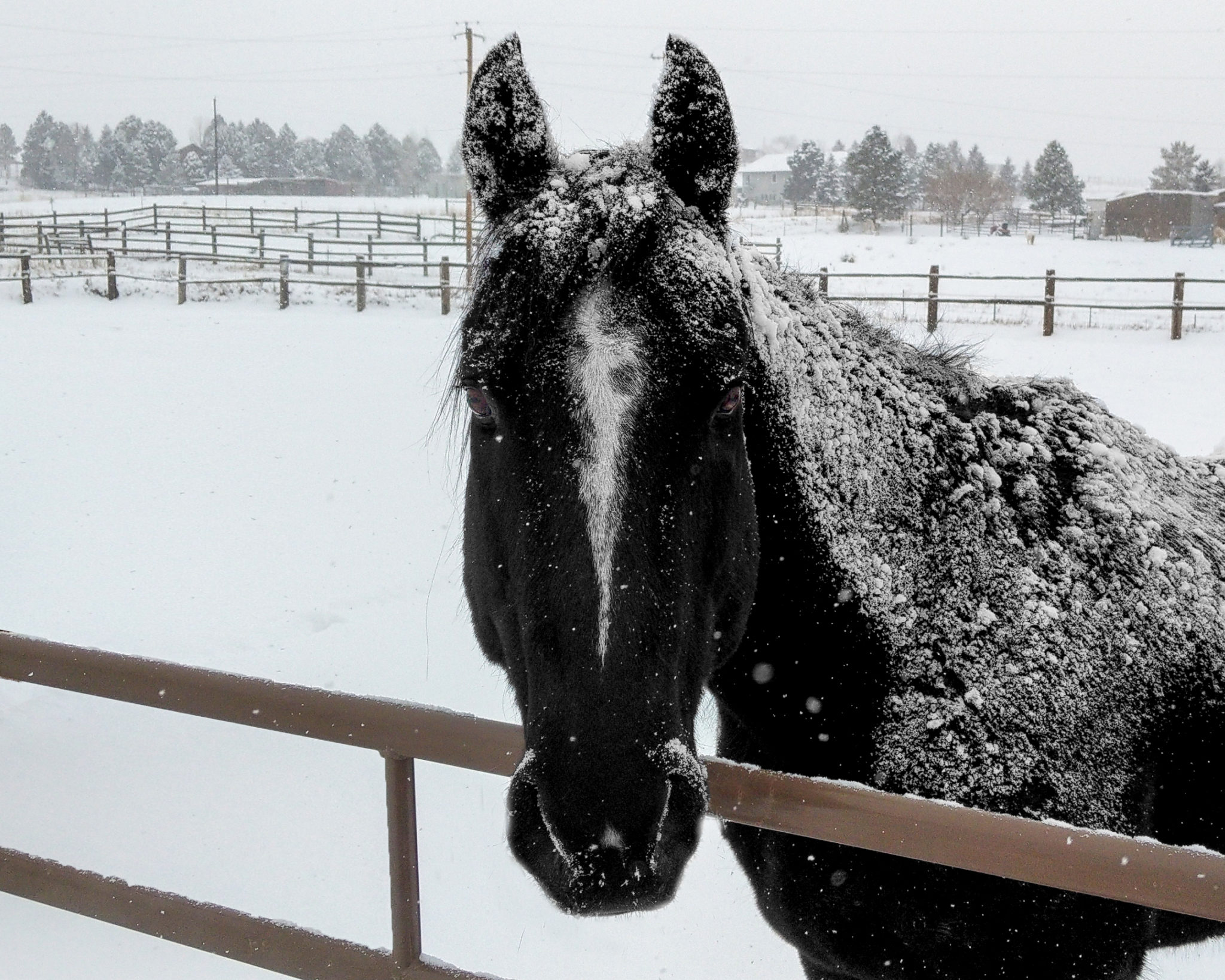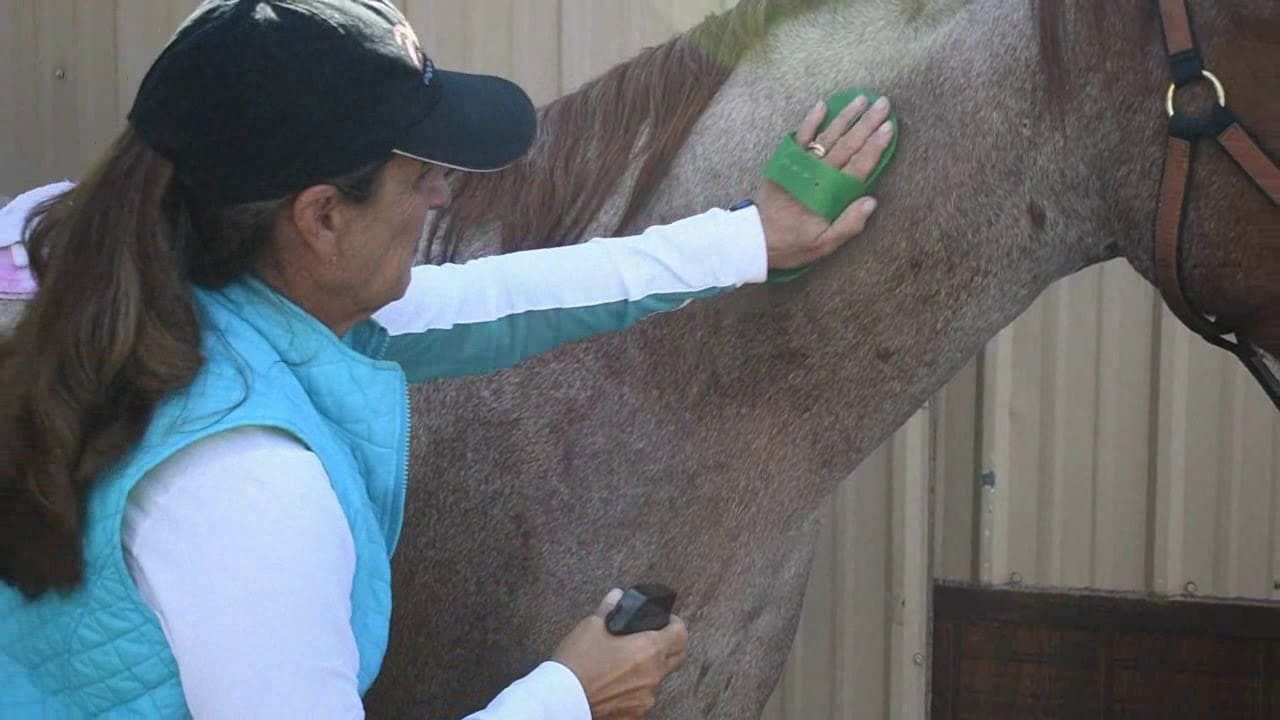When people find out that I live in “heart of the Rockies,” the central mountains of Colorado, at an altitude of 7800 feet, the next question is often, “My gosh, what do you do with your horses in the winter?” The answer is, not much changes for our horses, it’s just that we have to do a heck of a lot more work every day to keep things moving, literally (like water, poop and tractors). I’ve already railed about that enough.
Horses are such amazingly adaptable animals, they can adapt to and thrive in almost any climate on earth. Horses evolved somewhat simultaneously in all corners of the earth. That is why there are different “types” of horses. The Arab evolved in hot and dry climates, which explains the narrow nose—to cool and moisten the air as they breath; the draft horse evolved in colder climates with big honking noses to warm the air as they breath. There are many other such indicators of a horse’s ability to evolve over time to adapt to the harsh realities of its climate.
Horses also can adapt well individually to changes in their current living conditions as I learned when I shipped a mare from FL to CO in January one year. Her coat was SO thin and she wasn’t overly fat but we kept her in the barn and heavily blanketed for a few weeks, then out in the pen and blanketed for a few more weeks and then she was fine. I’ve bought quite a few horses in January and brought them here with thin coats and all have adapted readily—much better than most people do! While some horses have more trouble adapting to climate changes than others, most of them just get with the program.
Sometimes when you bring a horse from a warm climate to the CO mountains, they over-compensate and look like a huge Woolley mammoth the first winter. Such is the case with my cute little spotted saddle horse (an awesome trail riding machine), who now looks like a black and white fuzzy bear. After spending most of his life in FL, he came here and started putting on hair immediately, right in the middle of summer (it’s colder here at night in the summer than in FL in the winter). Next year he would probably grow a thinner coat, but he’ll likely be adjusting to a new climate by then once I find his perfect human.
And the answer is yes, we do blanket our horses in the winter—but not because they need it—it’s because we require it for our convenience. We keep our horses blanketed because we want thinner coats so that they look better (many are for sale) and so that they do not get over-heated in the indoor arena when we ride (this is actually an important safety issue because if a horse is wet at 3-4 in the afternoon, he will stay wet all night in the potentially sub-zero temps).
The only other significant change in our horses from summer to winter is that we pull their shoes in Oct/Nov when the first snows fly and try to leave them barefoot until spring. Since we are relegated to riding indoors because of ice, snow and frozen footing, it is a good time to let their feet strengthen. Once spring and summer hits and we start increasing their workload, riding outdoors, hitting the rocky trails (there’s a reason why they call it the Rockies) and working cattle, we’ll go back to shod horses.
I’ll be glad when the holidays are over and everyone gets back to their normal work routine, including me. I hit the road again in a couple weeks so I am still enjoying time at home and being with my family. We’ll ski today (12” fresh powder) and celebrate the New Year with fireworks and a torchlight parade at the ski area then home by 7:00 for a modest celebration with a few friends, my brother and niece. Since Rich will have to be at work by 6:30a the next morning, we’ll knock off early and be in bed before the ball drops in NY! Let’s talk about New Year’s Resolutions next time.
Happy New year!
Julie
Julie’s Shopping Cart



